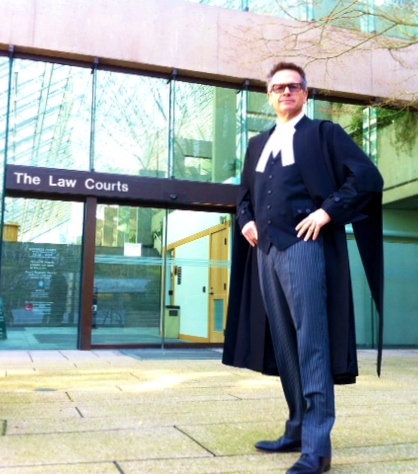
Lorne MacLean and Ari Wormeli are just finishing week 4 of a highly contested BC parental alienation and or estrangement case. These cases require a tremendous amount of work to uncover which aspect and or parent is causing the children to ally with one against visiting the other parent. Such cases are heartbreaking below we set out what types of alienation can exist as well as what types of alienating parents may be involved.
LEVELS OF SEVERITY OF PA
When parental alienation is mild, the child resists contact with the alienated parent, but enjoys his relationship with that parent once parenting time is underway. The child may have a strong, healthy relationship with both parents, even though the child recites criticisms of the alienated parent.
When parental alienation reaches a moderate degree of severity, the child strongly resists contact and is persistently oppositional during parenting time with the alienated parent. The child is likely to have a mildly to moderately pathological relationship with the preferred parent.
When parental alienation is at a severe degree of intensity, the child strongly and persistently resists contact and may hide or run away to avoid seeing the alienated parent. The child’s behavior is driven by a firmly held, false belief that the alienated parent is evil, dangerous, or worthless. The child is likely to have a strong, severely pathological relationship with the preferred parent, perhaps sharing a paranoid worldview.
What are the levels of intensity of alienating behavior?
In his book, Divorce Casualties: Protecting Your Children from Parental Alienation, Douglas Darnall (1998) proposed a three-tier classification system, now in common use, that distinguishes between naïve, active and obsessed alienators:
Naïve alienators make negative comments about the other parent but without serious intent to undermine the child’s relationship with that parent. Their negative comments tend to be careless remarks, and, in general, naïve alienators support the child’s relationship with the other parent.
Active alienators are more consistent and determined in their alienating behaviors. There is an intentional desire to criticize and undermine the targeted parent. Deep down, however, active alienators realize that what they are doing is wrong and potentially harmful to the child.
Obsessed alienators are determined to destroy the child’s relationship with the targeted parent. Obsessed alienators are extremists. They pressure the child to adopt their own negative view of the targeted parent, put much pressure on the child to emphatically reject the targeted parent, and cannot tolerate a good relationship between the child and the targeted parent.
What are the recommended treatments for parental alienation?
When parental alienation is properly recognized, that condition is preventable and treatable in many instances. The appropriate treatment is determined partly by the severity of the parental alienation manifested by the child and partly by the intensity of the alienating behaviors manifested by the alienating parent.
If the parental alienation is mild, the treatment can be accomplished by a parenting coordinator who helps the parents communicate in a constructive manner and gives them specific advice regarding their approach to the child’s activities with the alienated parent.
If the parental alienation is moderate, the treatment typically includes more intensive therapy for the child, mother, and father, as well as meetings with the parenting coordinator. If there are multiple therapists involved with the divorced family, they must agree regarding the nature of the problem and the goals of the treatment (Darnall, 2010).
If the parental alienation is severe, traditional forms of psychotherapy may not be effective. As time goes on, children with parental alienation become intractable in their false beliefs and their mental condition resembles that of individuals with delusional disorder. If the parental alienation is severe, it has usually been induced by an obsessed, alienating parent. Also, in some cases of moderate parental alienation, the cause of the condition is an obsessed, alienating parent. In both moderate and severe cases of parental alienation – when it is caused by an obsessed, alienating parent – it is necessary to greatly reduce or even eliminate the child’s exposure to that parent. See Gardner (2001), Darnall (2010), Warshak (2001, 2010), and Warshak and Otis (2010).
In such cases – when the parental alienation has been caused by an obsessed, alienating parent – it is necessary to transfer the children’s custody from the alienating parent to the custody of the alienated parent or perhaps to the temporary custody of a neutral caregiver. Once the child has been removed from the influence of the alienating parent, it is possible to help the child re-establish a comfortable, healthy relationship with the alienated parent. After that has occurred, it should be possible to allow contact gradually with the alienating parent, although that parenting time may need to be supervised. The ultimate goal is for the child to have a good relationship with both parents.








